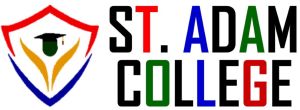Assist With Medication
- Description
- Reviews

What you’ll learn
- Understand medication legal framework.
- Learn medication terminology.
- How to handle, administer, and store medications.
- Identify common workplace medications.
- Apply 10 rights of medication safety.
- Ensure safe medication assistance.
- Understand how to assist clients with self-administration.
- Manage medication incidents effectively.
Why choose this course?
Careful attention to a client’s medication plan, and following proper medication administration protocols, are essential to guarantee their safety and well-being. Incorrect medication administration can lead to adverse effects, such as allergic reactions, drug interactions, or other serious complications. This course will provide learners with the essential knowledge required to safely prepare and effectively assist clients with medications, complete medication documentation and handle medication contingencies in the workplace.
What does the course cover?
This course provides learners with the essential knowledge required to assist clients safely and effectively with medications and manage medication contingencies in the workplace. This includes knowledge of:
- The legal framework that supports safe medications and the roles and responsibilities of those involved
- Basic medication terminology including abbreviations, naming conventions and instructions.
- Different forms of medications and how they are handled, administered, and stored in the workplace.
- The characteristics of commonly prescribed medications in the workplace
- The 10 rights of medication safety
- Applying safe work practices when assisting with medications
- Assisting clients who self-administer their own medications.
- Managing medication incidents, contingencies, reporting and documentation requirements
This course is essential for:
- Anyone who is required to assist people with medications.
- Direct Support Workers and other staff who work in group homes, residential facilities, supported employment, and day programs.
- Volunteers.
- Family and friends caring for loved ones.
- Allied Health professionals.





